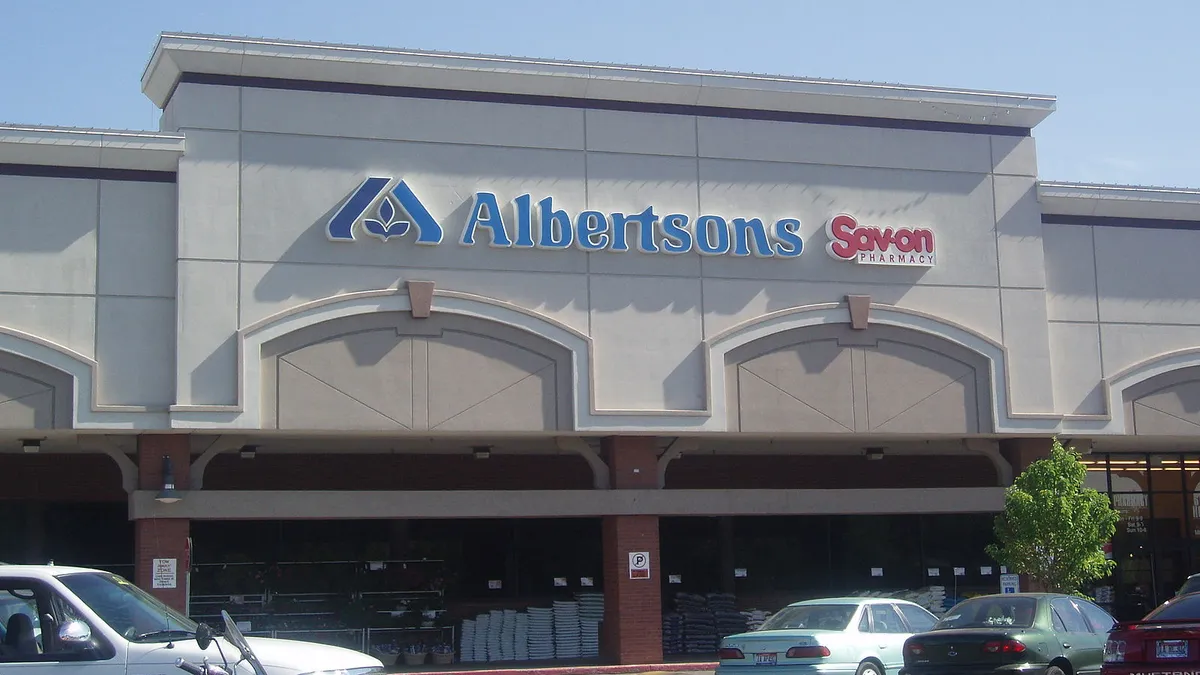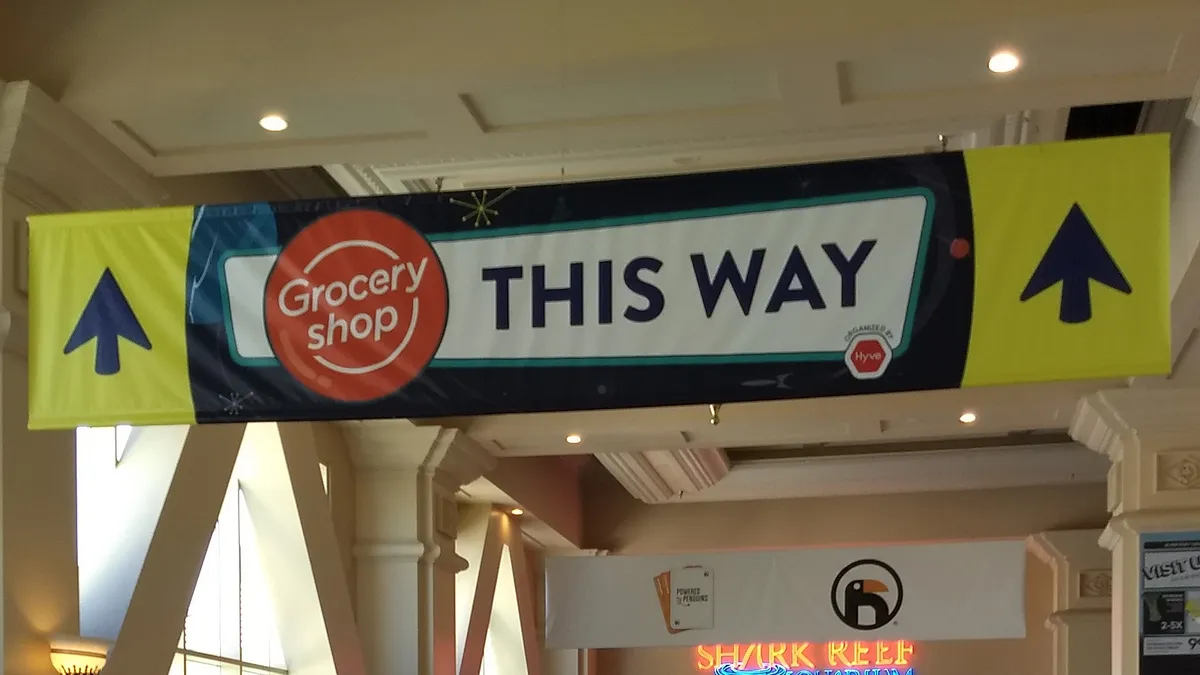Dive Brief:
- Albertsons has named Jim Donald its new president and chief executive officer, according to a news release. Donald, who was named president and chief operating officer of the company in March prior to its attempted acquisition of Rite Aid, will take over for Bob Miller, who will stay on as chairman of the board.
- Donald has held various executive positions in the food and retail industries. Most notably, he was the CEO of Starbucks for five years, leaving that position in 2008. He was CEO of Pathmark Stores from 1996 to 2002, and led Northwest grocer Haggen from 2009 to 2011. Donald worked for Albertsons for 15 years beginning in 1976, ultimately rising to become vice president of operations in Arizona. He also served as head of Safeway’s eastern division from 1994 to 1996.
- "Albertsons Companies is uniquely positioned to operate in both a 'four walls' traditional environment and the 'no walls' world of technology," Donald said in a statement. "We serve 34 million customers each week across our 2,300-plus stores and serve 5.5 million patients in our 1,700-plus pharmacies. That's a significant food, health and wellness footprint. We're well positioned to serve the evolving needs of today's customer, wherever and whenever they choose to shop with us. I am looking forward to leading this dynamic company as we focus on innovation and customer-centric retailing in all its forms."
Dive Insight:
Jim Donald takes the reins at Albertsons one month after the company failed in its bid to acquire pharmacy giant Rite Aid. That deal, which would have created a company with nearly 5,000 stores and $83 billion in revenue, fell apart after shareholders began questioning the value of the tie-up.
Donald will be under pressure to fill the gap left by that deal. For years, Albertsons has labored to elevate its value and go public. The grocer called off a stock market bid in 2015, and most recently it’s made modest investments in Hispanic grocer El Rancho Supermercado and acquiring meal kit company Plated. Clearly, the Boise, Idaho-based retail company remains on the hunt for a transformative deal.
The former Starbucks CEO will also look to continue building upon the initiatives already underway at Albertsons, including store remodels, growing its loyalty program, the Plated rollout and, most importantly, a chainwide digital expansion. The grocer offers home delivery from the majority of its locations through its own platforms and Instacart. It’s also quickly expanding Drive Up & Go, its click-and-collect service, from 94 locations to more than 500 by the end of this year.
One of the few truly national grocery companies, Albertsons has a footprint that includes 19 grocery chains — from Jewel-Osco in the Chicago area to United Supermarkets in the South and Safeway, its largest chain, on the West Coast. But the company, which was acquired by private equity firm Cerberus Capital Management in 2006, has taken on considerable debt to fund its growth. That debt continues to be a drag on Albertsons’ ability to invest in its operations.
“As a consequence, Albertsons is now a laggard in the grocery industry in terms of its proposition,” Neil Saunders, managing director of GlobalData Retail, wrote in a note emailed to Food Dive. “Stores are suffering from underinvestment, prices are way too high, and the offer looks tired. In our view, this is a dangerous position to be in at a time when grocery competition is increasing.”
Bob Miller, Albertsons 74-year-old outgoing CEO, has spent 57 of those in the grocery industry — but leaves behind a mixed record at the company, Saunders said. Donald, who recently completed a whirlwind tour of hundreds of company stores, is intimately familiar with the grocer and brings a wealth of experience from outside corporations. He remains a promising leader who will be tested by a changing industry and an innovative but deeply flawed company.
“Given the state of Albertsons' balance sheet and Cerberus' probable desire for a sale, [Donald’s] room for maneuver is limited and he will be under intense pressure to come up with quick-fixes,” noted Saunders.










